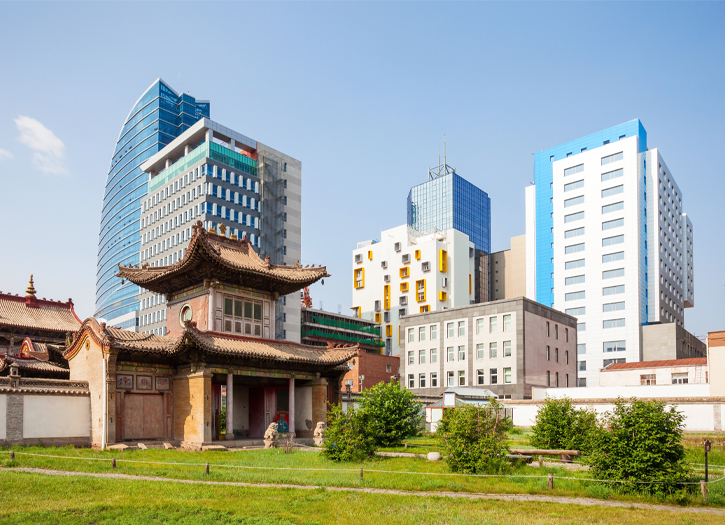The COVID-19 pandemic was confirmed to have reached Mongolia when its first case was confirmed in a French man who traveled from Moscow to Dornogovi on 10 March 2020. On 12 January 2020, the World Health Organization (WHO) confirmed that a novel coronavirus was the cause of a respiratory illness in a cluster of people in Wuhan City, Hubei Province, China, which was reported to the WHO on 31 December 2019.The case fatality ratio for COVID-19 has been much lower than SARS of 2003, but the transmission has been significantly greater, with a significant total death toll.
The government announced various measures to control the outbreak. These include closure of air and land border crossing between China and Mongolia since 27 January until further notice and suspension of all international flights and passenger trains until 30 April. All public events including conferences, sports and festivals have been cancelled across the country, while all educational institutes are to remain closed until 30 April. Citizens are prohibited to travel to the countries affected by the outbreak and any travellers from there are subject to a 14-day quarantine. Any individuals caught lying about their travel history and health information at the borders stand to be penalized. On 27 January 2020, the Mongolian government announced they would close the border with China.
In February 2020, the Mongolian government cancelled Tsagaan Sar, the Mongolian New Year.Around the holiday, severe limitations were placed on travel within the country. Major events were cancelled in March as well, causing economic difficulty for people whose incomes depend on tourism.Other epidemic control measures included temperature checks for passengers entering Ulaanbaatar, health questionnaires, and requiring face masks on Ulaanbaatar public transportation and at the airport.The government limited international flights and trains and closed its land borders.Various businesses were closed, including churches, bars, and saunas.
Sports, cultural activities, and restaurants were restricted.On March 22, the Cabinet Secretariat decided to close schools and cancel activities until the end of April.As of March 24, 2020, the country was in a state of “heightened awareness”, not national emergency. At that time, 2,034 people were in quarantine, with the number expected to increase as Mongolians returned from other countries.Almost 50% of the public regarded the government’s response measures to the COVID pandemic as successful according to a May 2020 opinion poll.
On 10 March, Deputy Prime Minister Ölziisaikhany Enkhtüvshin announced that a French national arriving in Ulaanbaatar via a flight from Moscow was the first confirmed COVID-19 case in the country. After special transit planes have started evacuating those who are considered “vulnerable” to the disease from European areas, Japan and Korea, three more people have been reported as being infected with COVID-19 on 21 March. One of the cases is severe and nine people in the immediate vicinity of the case have been isolated.On 27 March, one more person in isolation was tested positive for the coronavirus, bringing the total of imported cases to 11. The person was one of 221 people tested after being immediately isolated upon disembarking from an Istanbul-Ulaanbaatar charter flight approved by the National Emergency Commission.
On November 11 the State Emergency Committee (SEC) and Ministry of Health announced the first verified case of community transmission in Mongolia. Patient zero was a 29 year old cross-border truck driver (named Citizen D) who had been released from isolation on Nov 06. Citizen D had been isolated at the Enkhsaran Health Resort for 21 days upon arriving from Russia. The additional 14-day home isolation requirement had been cancelled a few months prior. Thus he was released into the general population in Ulaanbaatar and proceeded to his home in the north-eastern suburbs of the city. The SEC made public his reconstructed movements within the city. He had taken public transportation a number of times, mostly in the far western part of Ulaanbaatar
On Nov 11 the city of Ulaanbaatar was placed on lockdown for five days. Later that day the lockdown was upgraded to a Total Readiness Stage to run from Nov 12 till Nov 17, unprecedented for the country. All businesses except essential services were closed or made to work from home.







Add Comment